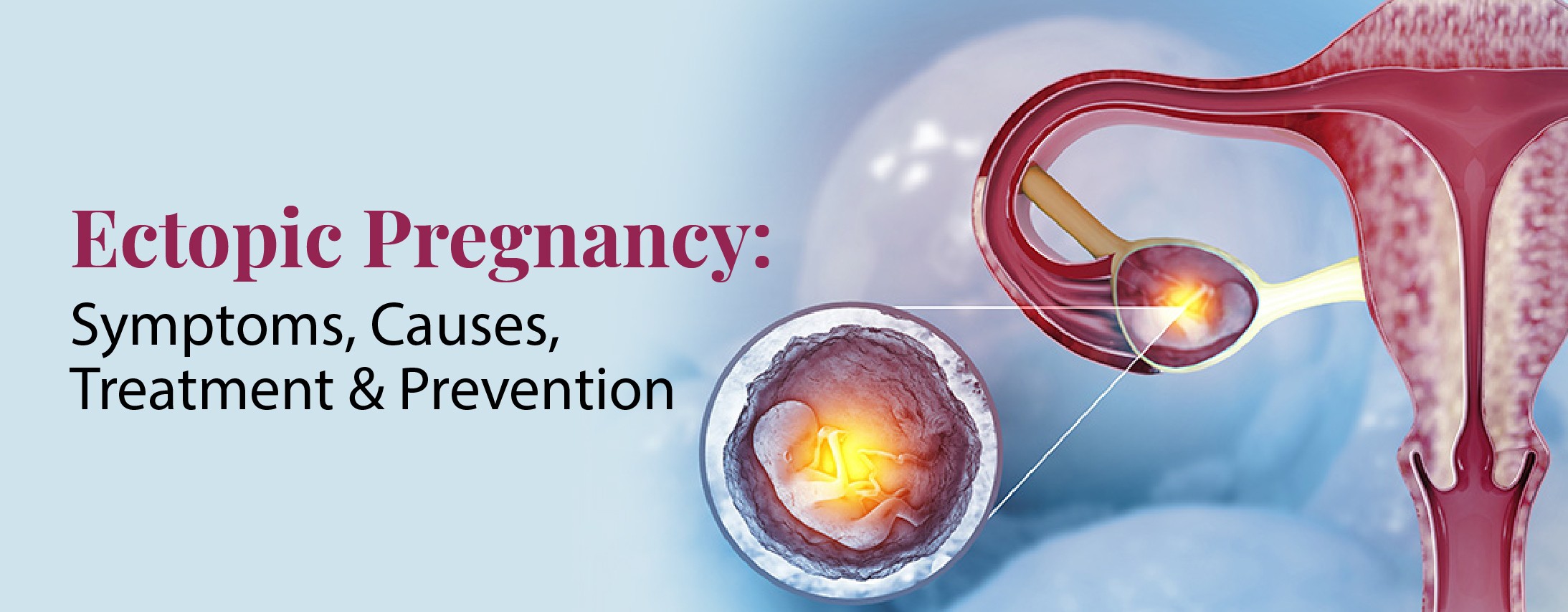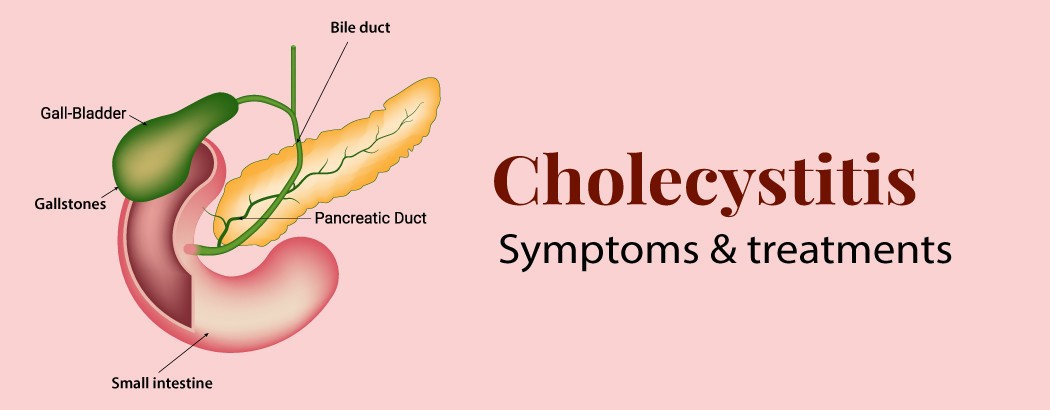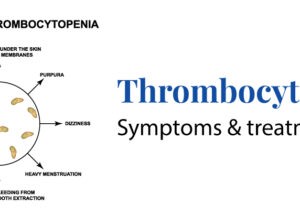Ectopic Pregnancy: Symptoms, Causes, Treatment and Prevention
January 4, 2024

Ectopic Pregnancy
Growth of a fertilized egg outside the uterus results in an ectopic pregnancy. A fallopian tube is involved in nearly 90% of ectopic pregnancies. The tube may rupture (burst) as the pregnancy gets bigger. Significant internal bleeding can result from a rupture. Surgery is necessary right away because this could be a life-threatening situation.
Contents
What is Ectopic Pregnancy?
An ectopic pregnancy occurs when an egg that has been fertilized implants outside of the womb, typically in one of the fallopian tubes. Connecting the ovaries to the womb are tubes called fallopian tubes. If an egg becomes lodged in them, it will not develop into a baby and, should the pregnancy proceed, it may pose a risk to your health.
Sadly, there’s no way to keep the pregnancy viable. Usually, medication or surgery is required to remove it.
Types of Ectopic Pregnancy
Although the fallopian tube is the site of most ectopic pregnancies, an egg can adhere to other organs outside of the uterus. Additional forms of ectopic pregnancy consist of:
Ovarian ectopic pregnancy (OEP): This kind of ectopic pregnancy occurs when a fertilized egg implants outside of your ovary. Issues with the way your body releases eggs during your menstrual cycle may be the cause of OEP. An egg may be fertilized while it is still inside a follicle, which is an ovarian structure, and as the egg travels from your fallopian tube to your ovary, OEP may occur.
Abdominal ectopic pregnancy: Pregnancy can very rarely occur in the abdominal cavity, which is the area between your abdominal wall and spine. The flow of fluid in the abdomen during this kind of ectopic pregnancy may carry an egg behind the uterus, where a sperm fertilizes it. Alternatively, an embryo may use lymphatic channels to travel from the reproductive tract to the abdominal cavity.
Cervical ectopic pregnancy: When an egg implants in the cervical canal, an ectopic pregnancy of this type occurs. This can occur as a result of injury to the uterine cavity.
Cesarean scar ectopic pregnancy (CSEP): When a fertilized egg adheres to C-section scar tissue, it is known as CSEP. Scar tissue can tear and result in severe bleeding because it is weaker than the lining of your uterus.
These ectopic pregnancy symptoms are similar to those that occur in your fallopian tube, such as vaginal bleeding and lower abdominal pain.
Symptoms of Ectopic Pregnancy
You might not initially exhibit any signs of an early ectopic pregnancy. They might appear to be quite similar to those of an ordinary pregnancy. It’s possible that you’ll miss your period and experience breast tenderness and stomach discomfort.An ectopic pregnancy’s symptoms can appear as early as week 4 and as late as week 12, though they are more prevalent in weeks 6–9.
Belly pain, vaginal bleeding, and missed period are the three main signs of an ectopic pregnancy, which only affect about half of women.
A few early indicators of an ectopic pregnancy are:
- Sharp abdominal cramps
- nausea and upset stomach
- pain on one side of the body
- weakness or dizziness
- pain in the shoulder, neck, or rectum
The pain and bleeding from a burst fallopian tube may be so bad that they result in other symptoms. These may consist of:
- Passing out.
- Hypotension: A low blood pressure state.
- Pain in the shoulders.
- Bowel issues or rectal pressure.
Lower abdominal pain that is sudden and sharp may occur when a tube bursts. A medical emergency exists here. You ought to get in touch with your physician or visit the emergency room right now.
Causes of an Ectopic Pregnancy
Sometimes it’s unclear what causes an ectopic pregnancy. An ectopic pregnancy known as a tubal pregnancy occurs when a fertilized egg becomes stuck en route to the uterus, frequently due to inflammation or malformation of the fallopian tube. Unbalanced hormone levels or aberrant development of the fertilized egg could potentially be factors.Ectopic pregnancy is typically caused by disorders that impede or slow the egg’s descent through the fallopian tube. This could occur for the following reasons:
-
Fallopian tube inflammation and scarring resulting from a prior illness, infection, or surgery
-
A hormone-related factor
-
Birth defects, genetic abnormalities, and illnesses affecting the form and function of the fallopian tubes and reproductive organs
Risk Factors for Ectopic Pregnancy
An ectopic pregnancy is a possibility for any sexually active woman. Any of the following increases risk factors:
- A history of pelvic, abdominal, or multiple abortions; a mother who is 35 years of age or older;
- The factors that contributed to the conception were smoking, tubal ligation, intrauterine devices (IUDs), history of endometriosis, pelvic inflammatory disease (PID), and assisted reproduction.
- Having structural abnormalities in the fallopian tubes that make it difficult for the egg to travel
- Having a history of ectopic pregnancy
- Having a medical history of sexually transmitted infections (STDs), like chlamydia or gonorrhea
Diagnosis for Ectopic Pregnancy
Since the early symptoms of an ectopic pregnancy can mimic those of other medical conditions, diagnosis can be challenging.
A medical practitioner evaluates the ectopic pregnancy symptoms and performs pregnancy tests first. To confirm the diagnosis, they subsequently request a transvaginal ultrasound from.This entails creating images of the uterus and its surroundings using sound waves.
The doctor may prescribe blood tests to keep an eye on the patient’s condition if it is too early to identify an ectopic pregnancy. This will go on until the ectopic pregnancy is verified or ruled out by the doctor.
Ectopic Pregnancy Treatment
The course of the pregnancy and any potential difficulties will determine the treatment options.Since an ectopic pregnancy is a medical emergency, it must be treated immediately. This is because only the uterus, which has the ability to expand, can permit the fetus to grow. Any other structure, including the fallopian tubes, can be ruptured by an ectopic pregnancy, leading to potentially catastrophic internal hemorrhage.
The following is the course of treatment for ectopic pregnancy:
- To stop the growth of the fertilized egg and end the pregnancy, your doctor may prescribe medication in some circumstances. The drug should not do any harm to your fallopian tubes.
- Surgery is frequently required when an ectopic pregnancy ruptures, the woman is experiencing significant symptoms, or when medical care is deemed unsuccessful or inappropriate.
- Regular monitoring with blood tests and ultrasounds is necessary.
Preventing Ectopic Pregnancy
The following actions can reduce the chances of an ectopic pregnancy even though they cannot be prevented:
- Reducing the number of partners and using a condom during sexual activity can help prevent STDs and potentially reduce the risk of pelvic inflammatory illness.
- Cease smoking. Give it up before trying to get pregnant if that’s the case.
Conclusion
An ectopic pregnancy is any pregnancy that grows outside of your uterus. If left untreated, an ectopic pregnancy can need emergency care. Early intervention reduces the risk of long-term health problems, increases the likelihood of getting pregnant again, and lessens the possibility of difficulties from an ectopic pregnancy.
Frequently Asked Questions
1. Do ectopic pregnancies have an impact on subsequent pregnancies?
After an ectopic pregnancy, your chances of getting pregnant again are increased. In the event that you become pregnant again, watch out for the telltale signs and symptoms of an ectopic pregnancy until your ob-gyn or another medical professional verifies that the pregnancy is developing normally.
2. Is it possible for a baby to survive an ectopic pregnancy?
Nope.Pregnancy loss is the inevitable outcome. This is because the fetus is unable to receive the blood and nourishment it requires to develop outside of the uterus.
3. Is it possible to prevent an ectopic pregnancy?
An ectopic pregnancy cannot be prevented. Nonetheless, you can attempt to lower your risk by leading a healthy lifestyle. These can include quitting smoking, achieving and preserving a healthy weight, and guarding against STIs.
4. After an ectopic pregnancy, how long should I wait before getting pregnant again?
Once you have received treatment for an ectopic pregnancy, you should discuss any future pregnancies with your healthcare provider. It’s usually best to wait about three months after treatment, though pregnancy may occur quickly after. This lowers the chance of another ectopic pregnancy and gives your fallopian tube time to heal.







